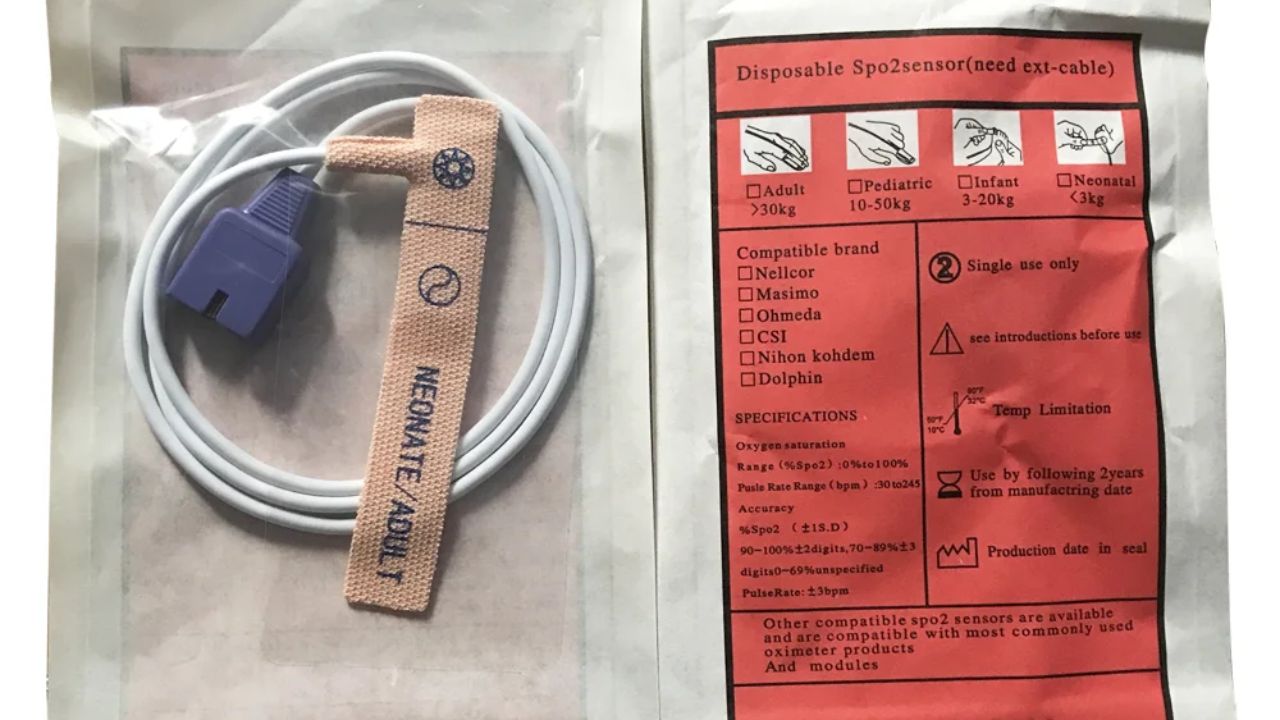Patient monitoring is now more than ever required in the modern healthcare systems that are fast-paced and hygienic. Disposable SpO2 sensors are among the most critical additions to contemporary medical practice due to their accuracy, safety, and functionality. These and other sensors utilized to measure pulse rate and blood oxygen saturation have become irreplaceable in hospitals, clinics, and emergency care. Medke is a reputable manufacturer of patient monitoring accessories in the world, and it can be confident that the disposable spo2 sensor is of the best available standards in terms of accuracy and reliability. According to the following reasons, disposable SpO2 sensors have become indispensable in the health care setting.
Providing Accurate and Reliable Readings
Oxygen monitoring accuracy can also have a direct effect on treatment outcome. The SpO2 sensors produced by Medke are disposable and are meant to provide uniform and accurate measurement in even the harshest of environments, like low perfusion or patient motion. Their high sensor technology has guaranteed consistent signal detection, which will be essential in making timely and informed clinical decisions.
Supporting Multi-Brand Compatibility
Today, hospitals have various monitoring systems of different brands. The disposable SpO2 sensors developed by Medke are universal. This interoperability enables the healthcare provider to easily adopt the sensors with their already existing equipment, enabling them to simplify their operations and avoid purchasing issues.
Improving Workflow Efficiency
The efficiency of time in hospitals has a direct impact on the outcomes of patients. Disposable sensors are also used to simplify the workflow process because there is no reprocessing required between patients. The sensors are easily replaceable, and thus healthcare personnel can turn around patients faster and continuously monitor patients in the case of an emergency or high demand.
Ensuring Patient Comfort
The skin-friendly nature of the disposable SpO2 sensors is that they are manufactured using materials that do not irritate the skin when used over a long period. It is especially useful when dealing with patients who have sensitive skin, pediatric patients, or when a patient is put under long-term monitoring conditions. The sensors offered by Medke are comfortable to wear and at the same time have high signal accuracy, hence reliability and patient satisfaction.
Meeting Global Safety Standards
Any medical device must have quality and safety certifications. Medke has disposable SpO2 sensors that are in line with international standards like ISO and CE because they are concerned with the reliability and safety of patients. Adherence to these standards will guarantee that healthcare providers know that all sensors are of the best quality standards.
Offering Cost-Effective Solutions for Large-Scale Operations
Even though disposable sensors are single-use, they have long-term economic advantages of lessening the cost of infection-related complications, the cost of sterilization, and decreasing downtime. To hospitals dealing with large numbers of patients, this translates into effective use of budgets and minimized risks of operation.
Supporting Emergency and Field Medical Use
Mobility and speed are essential in cases of emergency. Disposable SpO2 sensors provide immediate usage, which does not involve any preparation or sterilization. They are applicable in the ambulances, portable clinics, and temporary health care centers where prompt and reliable monitoring can save lives.
Reducing Maintenance and Cleaning Costs
The reusable sensors must also be well-maintained by cleaning, disinfecting, and verifying their efficacy and safety. This is a process that is costly and time-consuming. Disposable SpO2 sensors, in their turn, require neither maintenance nor sterilization, and medical teams can save time and resources without violating the quality of care.
Enhancing Hygiene Standards
Strict hygiene measures have become a worldwide issue, and this has been a result of a number of world health crises. Disposable sensors facilitate the use of infection control programs, where all patients are provided with a fresh, sterile sensor. These hygiene practices contribute to ensuring that the medical facility adheres to the standards of the regulatory bodies and ensures a healthier clinical setting.
Conclusion
The current trend toward disposable healthcare equipment can be seen as an indicator of the new trends in the priorities of healthcare, including safety, efficiency, and precision. Disposable SpO2 sensors reflect each of these values, as they are reliable for monitoring and providing safety, hygiene, and compatibility. Such attributes can be seen in the varieties of disposable SpO2 sensors that Medke offers, helping hospitals and clinics to acquire reliable instruments to improve the treatment of patients. In a medical environment requiring precision and infection prevention, the disposable SpO2 sensors have justifiably taken an important part in the contemporary medical experience.


